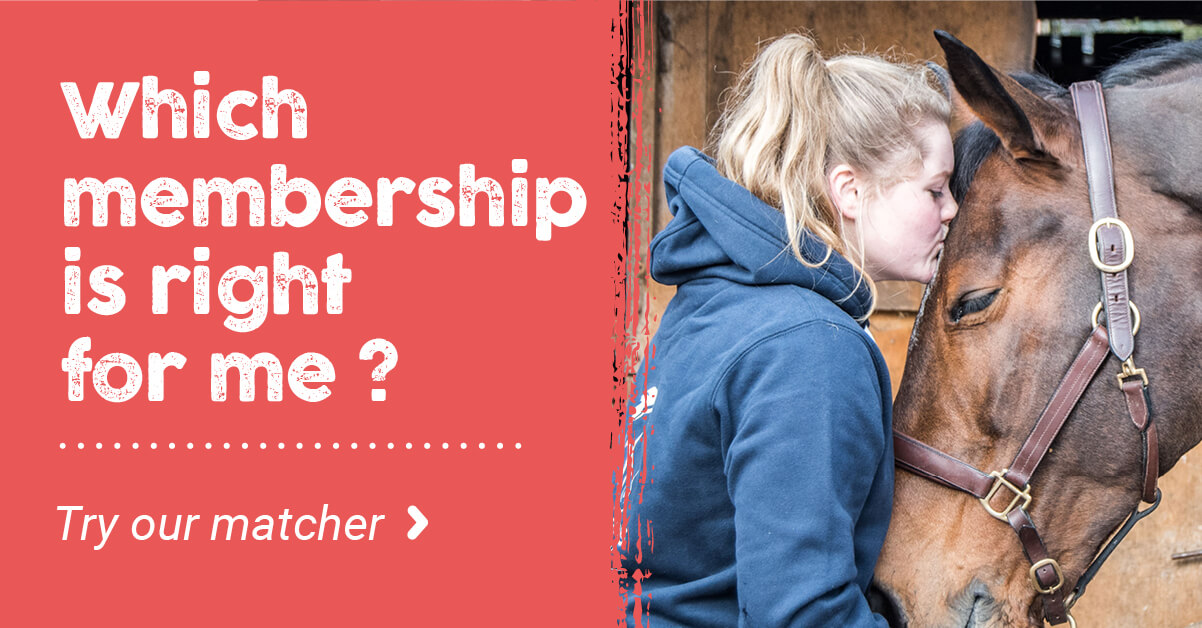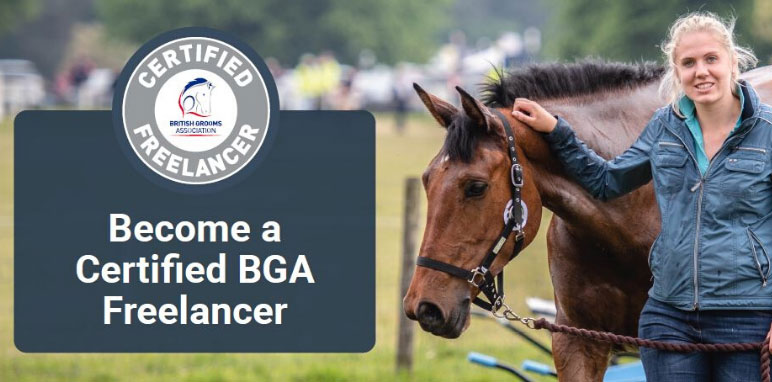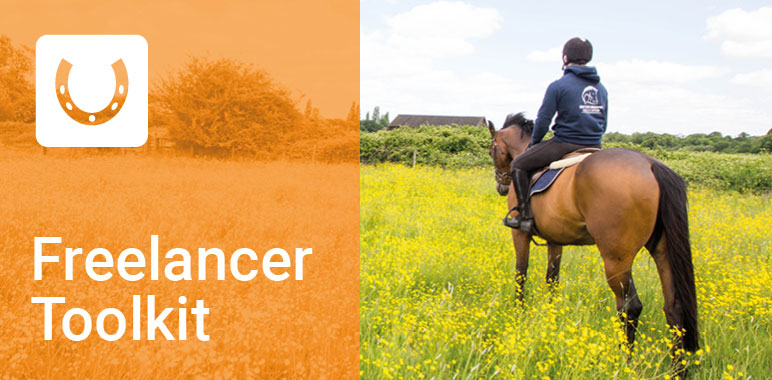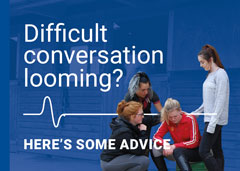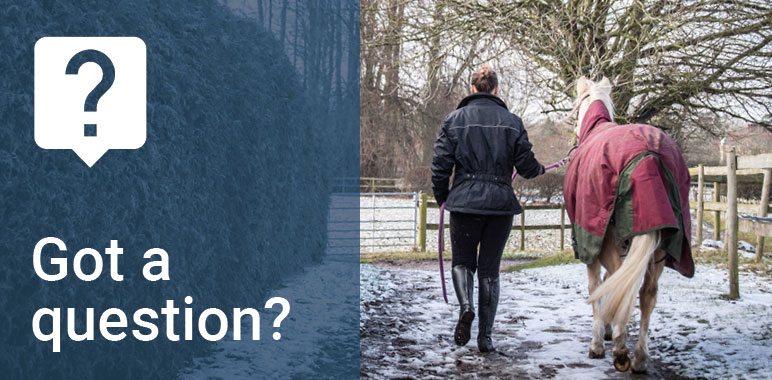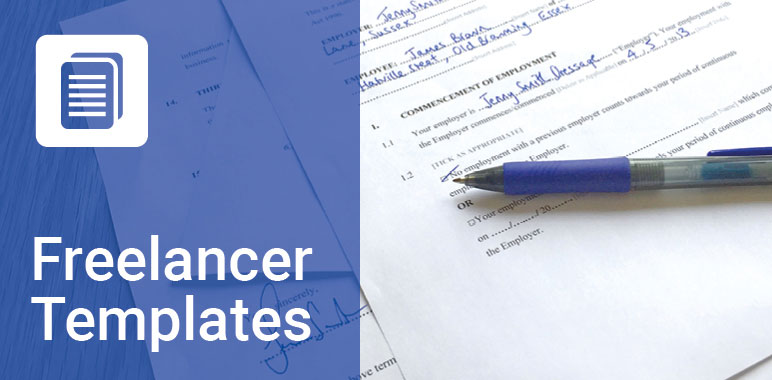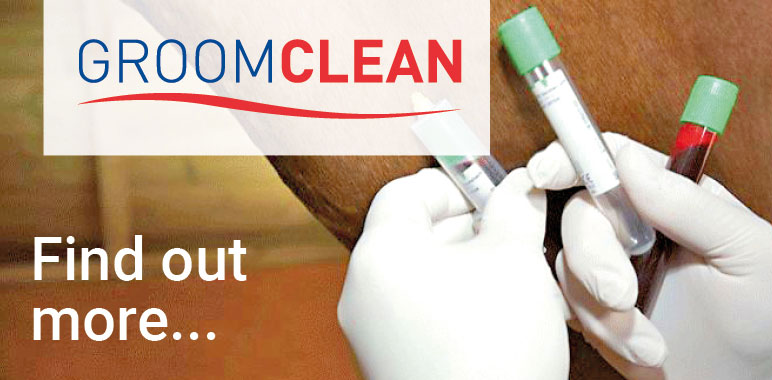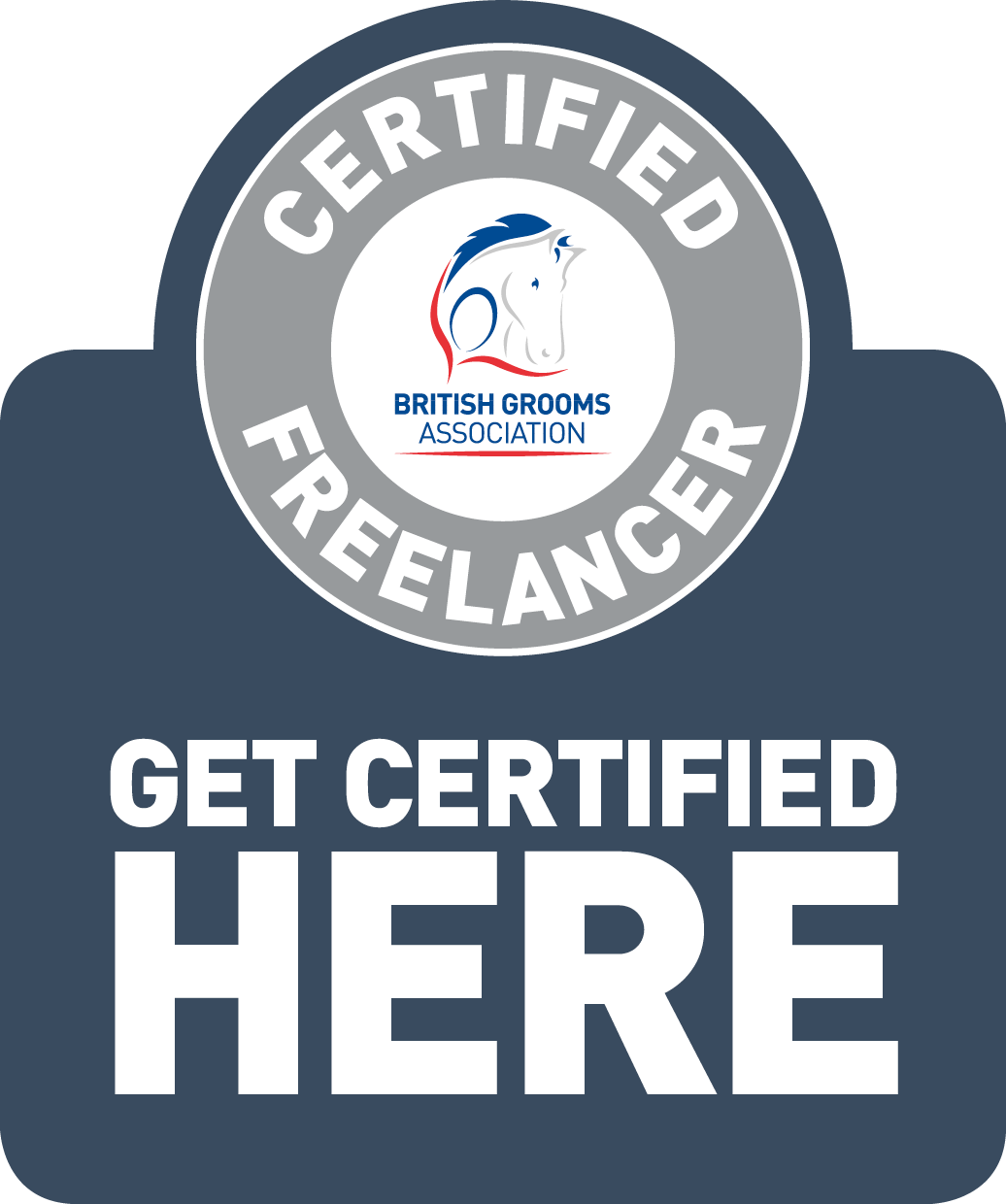- Join Now
- Login
- Member Zone
- Your Career
- Freelancing
- International Grooms Association
- BGA Training
- Healthy Yard Healthy Horses
- Transporting horses
- Brexit
- Safe workplace
- Student Zone
- Member Discounts
- BG Magazine
- Member services
- Training & Careers
- BGA CV Creator
- Horse groom training
- Where to Train
- BGA E Learning
- Career choices
- Change to Racing
- First Aid training for grooms
- Parents
- Grooms Jobs
- Grooms Life
- About
- News
- Contact

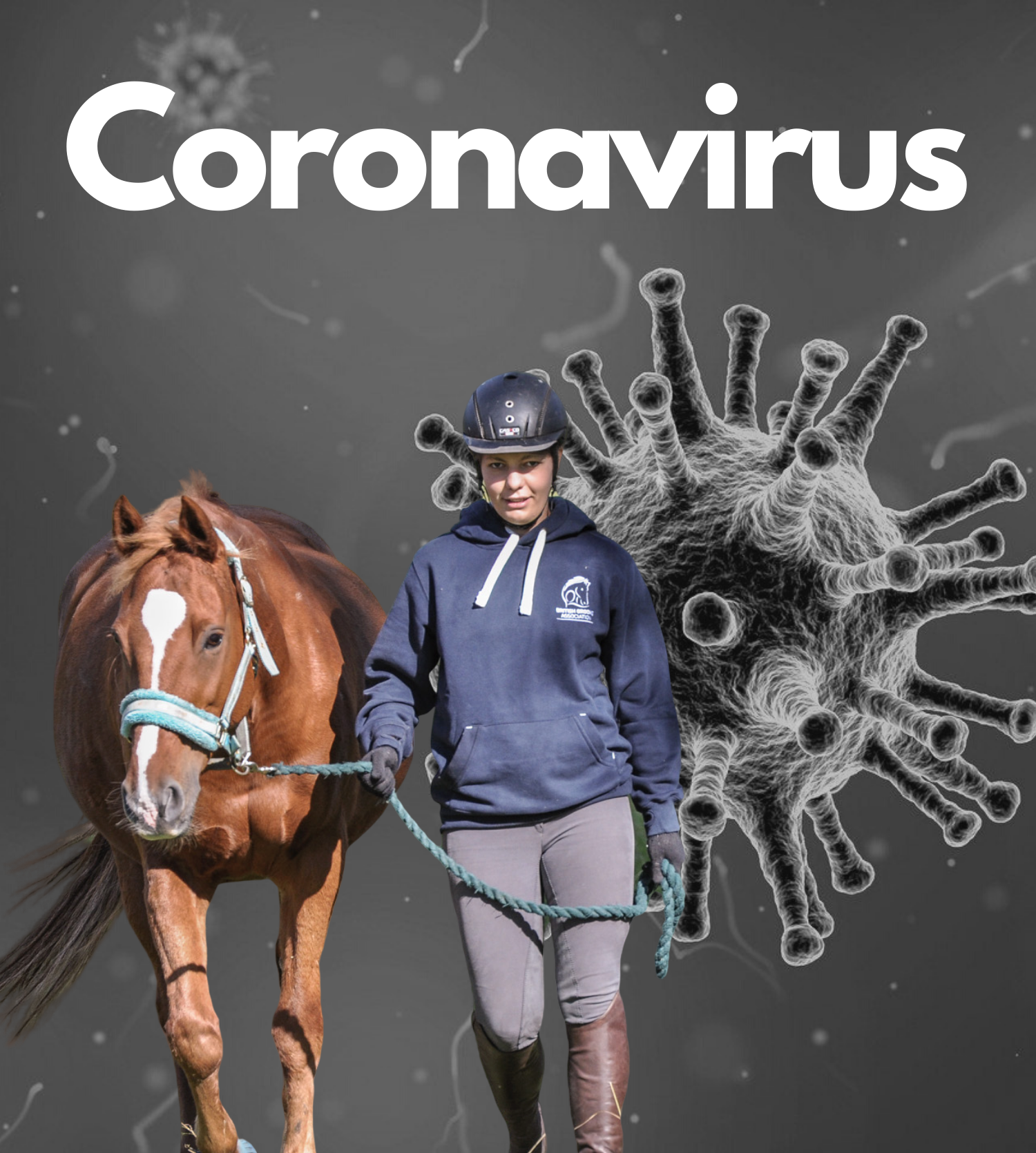
#COVID-19: guidance for grooms
Page updated on 24th March 2021
With the rapidly changing nature of the COVID-19 outbreak, information and advice from Government can change quickly. For all the latest Government information on COVID-19 and the measures the Government, and Devolved Governments, are taking, please visit the UK Government website, the Scottish Government website, the Welsh Government website or the Northern Irish Government website.
The information below is kept under continuous review and is updated often, please be sure to check the COVID-19: guidance for employers and businesses from the Government for the latest updates.
On this page
Lockdown#3
Working safely
Minimise the risk of injury
Lockdown - what do we know
Riding and caring for horses
Advice for freelancers
Support for the self employed
Advice for employed
Your mental health
Lockdown #3
All home nations are easing out of lockdown restrictions across the United Kingdom.
Across the four countries there is now a road map in place giving a clearer guide to returning to 'normal'.
| Read the National Lockdown guidance from the Government Read the Lockdown Guidance from British Equestrian |
As the Professional Association for those that work with horses, we have reviewed the guidance documents, which in some parts is very clear and in some not.
CAN Grooms Go TO WORK?
Yes. Grooms can go to work as they are not able to 'work from home'.
Freelancers can continue to operate and provide services, as they also can not work from home. (This includes riding client's horses)
All should adhere to strict social distancing measures and enhanced biosecurity guidelines at all times.
CAN I Be Furloughed?
Yes. The Coronavirus Job Retention Scheme has been extended until September 2021, with employees receiving 80% of their current salary for hours not worked, up to a maximum of £2,500.
Employers can operate either a flexible furlough (whereby the employee works reduced hours and is furloughed for hours not worked) or a full furlough (whereby the employee does not work throughout the furlough period).
The employer will be asked to cover National Insurance and employer pension contributions.
ENGLAND ROAD MAP
FROM 29 MARCH
Six people or two households can meet outdoors
Outdoor sports facilities can open and organised sport allowed
Travel outside local area allowed
This indicates that organised competition, training and activity can resume from this date onwards. All equestrian centres and riding schools will be allowed to re-open, with arena hire also permitted.
FROM 12 APRIL
Non-essential retail can open
Outdoor hospitality is permitted
Self-contained accommodation hire permitted
Overnight stays for competition or training purposes would be permitted at this stage.
FROM 17 MAY
Many social contact restrictions lifted outdoors
Six people or two households can meet indoors
Indoor hospitality and hotels can open
Spectators will once again be permitted at shows, albeit with limited numbers, and restrictions on international travel could be lifted.
FROM 21 JUNE
All legal limits on social contact removed
ARE COMPETITIONS AND ORGANISED TRAINING PERMITTED?
Please see each countries road map for the restarting of all competitions and hiring of equestrian facilities.
SCOTLAND ROAD MAP
Outdoor non contact sport and organised activity is permitted for groups of up to 15 people which has opened up the opportunity to take part in equestrian training and sport, within your local authority.
Four people from two households can meet in an outdoor setting
12–17-year-olds can meet outdoors in groups of four, with no limit on household numbers
Outdoor non-contact sports and organised exercise is permitted for groups of up to 15 people (up to 30 for under 12s)
There is still a requirement for adults to stay within their local authority boundary for exercise and organised activity, while those aged 12–17 may cross into other areas. Sportscotland and horsescotland advice also indicates that anyone may travel up to five miles into a neighbouring local authority area for informal activity such as hacking or facility hire without a coach.
FROM 5 APRIL
Stay at home restriction removed
All children to return to school
Communal worship can restart with restricted numbers of 20
Six people from two households can meet together
Easing of restrictions on indoor household gatherings
Further essential retail can begin to re-open
FROM 26 APRIL
All of Scotland return to Level system of restrictions
Phased return of non-essential retail
Some hospitality, leisure venues and gyms can re-open
However, the First Minister has said that these changes will be based on scientific data and meeting certain requirement, so are provisional at this stage.
Further information
For further information about how these restrictions impact equestrian activity in Scotland, please visit the Guidance for Scotland page on the BEF Coronavirus Hub.
Helpful websites:
GOV.SCOT – Stay at home guidance - https://www.gov.scot/publications/coronavirus-covid-19-stay-at-home-guidance/
sportscotland - https://sportscotland.org.uk/covid-19/
horsescotland - https://www.horsescotland.org/covid-19support
WALES Road MaP
From Saturday 13 March, restrictions were lowered in Wales, with the message moving from ‘stay at home’ to ‘stay local’, where possible.
The guidance for local travel is to stay within five miles of home, although those living in more remote rural areas can travel further for reasonable journeys.
Outdoor sports facilities have reopened, with a maximum of four people from two households permitted to take part in activities using local facilities at any one time. Equestrian venues can open for hire and activity on this basis, provided that they operate within the meeting number and travel restrictions.
FROM 27 MARCH
The ‘stay local’ restrictions will be lifted to allow people to travel within Wales
Self-contained holiday accommodation will re-open for one household
Organised outdoor children’s activities will restart
These restrictions are currently set to be reviewed on 1 April.
Further information
For further information about how these restrictions impact equestrian activity in Wales, please visit the Guidance for Wales page on the BEF Coronavirus Hub.
Download essential travel template
If you would like to have this in your car, it might help if anyone questions your travel.
Download BGA Critical Worker Statement
Use this statement from the BGA to evidence the need for your child to be accepted as one of a Critical Worker. (Available to BGA Members only)
Working safely
Coronavirus is with us for sometime and it is important that your employer provides a safe working environment for you.
work safely
Your employer must consider how you can work safely to protect their staff, themselves, the clients and their family if they also live on site.
It is THEIR responsibility to ensure that the workplace is safe. If the workers feel that the yard has not taken steps to be coronavirus safe, they have a right to not work until the correct measures are put in place.
| Read the Governments advice on working safely during coronavirus if outdoors |
There might have been no changes at all during the first lockdown, as in it has been business as usual, however these following steps are still relevant for any employer or yard manager to consider:
|
Adhere to the Government's rules on social distancing and washing hands. Consider ways to make the toilet facilities as safe as possible with strict biosecurity measures in place. |
|
Everyone needs to assess and manage the risks of COVID-19. An employer, has a legal responsibility to protect workers and others from risk to their health and safety. This means they need to think about the risks they face and do everything reasonably practicable to minimise them, recognising one cannot completely eliminate the risk of COVID-19. A risk assessment is not about creating huge amounts of paperwork, but rather about identifying sensible measures to control the risks in your workplace. A risk assessment will help an employer to decide whether they have done everything they need to. Use the EEA Risk Assessment Creator to write a bespoke version for your yard. |
|
Arrange a meeting with the staff to allow them to voice any concerns they may have on either the restrictions of lockdown being lifted, and/or additional individuals attending the yard (you could suggest this to your employer). |
|
Yard equipment really must if possible not be shared. If it is eg. wheelbarrows, ensure that it is disinfected after person 1 use. At the end of each working day, a thorough clean of all equipment, communal areas and door handles and locks should happen. Insist the clients use their own grooming kits and each worker has their own grooming kit which is not shared - this especially important for freelancers. |
|
Write a yard protocol on biosecurity and social distancing and communicate this to employees, clients and anyone visiting your yard. |
|
When tack is being used by more than one person, it must be cleaned after use by person 1 using an appropriate disinfectant (either in the water, wipe or spray) before saddle soaping. |
|
Ensure employees and clients ride and train within their current capabilities. |
|
To reduce the number of people on yard at any one time, create allocated time slots for clients and maintain segregation of workers. |

Complete the ABRS Certificated E-Learning Course on Safe Working Practices whilst Exiting Lockdown
The online course is designed for equestrian centre owners and their staff to ensure that they are fully prepared and feel confident in the transition phase and takes just 15 minutes to complete and is free - just email office@abrs-info.org including the name and email address of each participant to take part.
Can liveries come
Yes. Livery yards who had closed to clients can consider relaxing attendance rules but with rota/number restrictions/hygiene/social distancing as required. This will be at owners’ discretion as some may be vulnerable/shielding.
Can i coach clients at my yard or travel to THEM
Yes for with social distancing. Coaches to put necessary measures, risk assessments and safeguarding provision in place.
Can I travel to my clients yard to teach or groom
Yes. You can travel to yards to teach or groom with social distancing. Coaches to put necessary measures, risk assessments and safeguarding provision in place.
Is sharing equipment now safe
No - you must adhere at all times to the same levels of handwashing and biosecurity as at the peak of the virus.
FIRST AID CONSIDERATIONS
It is important to consider how to support and protect first aiders with the current risks associated to COVID-19.
Medi- K have recommended visiting the resuscitation guidance for first aiders and from the Health and Safety Executive (HSE).
Can I minimise the risk of injury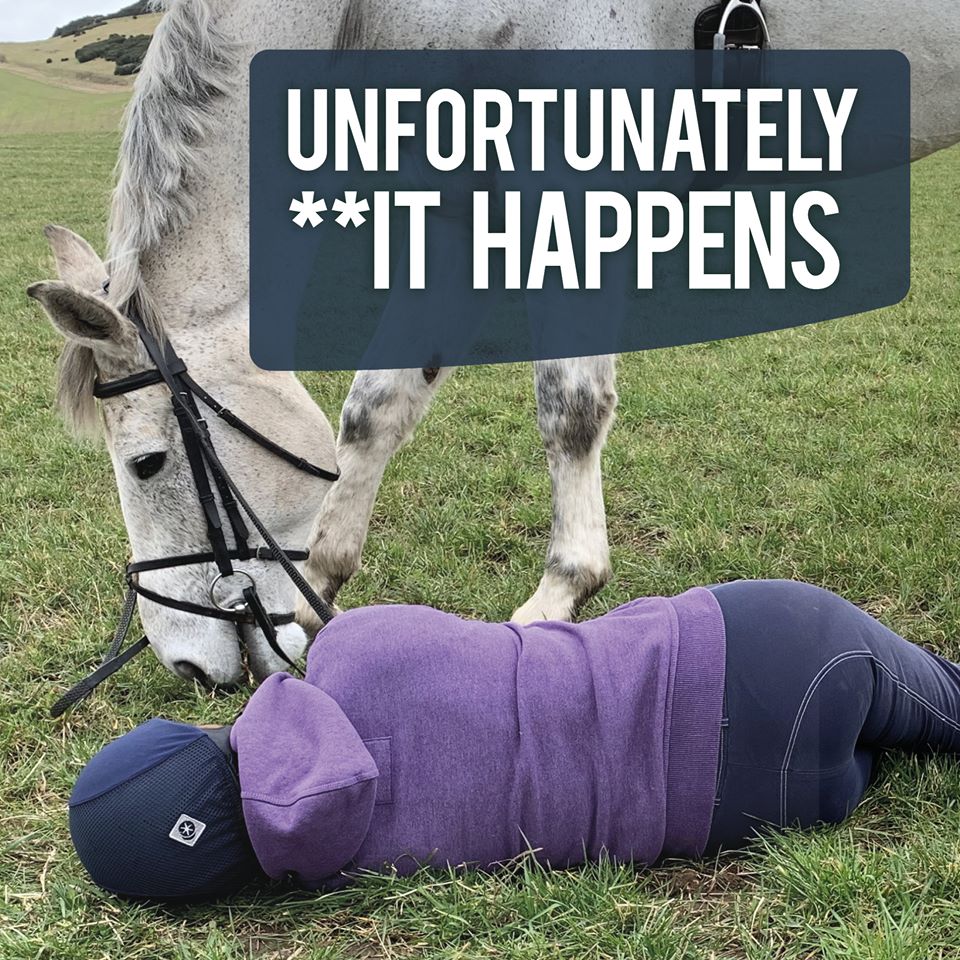
Riding horses is just one way of getting injured, so what can you do to minimise the risk and help to protect our NHS?
There are a lot of fit horses currently that can’t just be turned away, which increases the risk even more of injuries happening.
Unfortunately, accidents can and will still happen - so be extra cautious during this time period.
10 critical tips to follow
 |
Make sure you wear a hat. And not just for riding. Being on the floor is just as dangerous as riding and even if you don’t normally then wear a hat for turn out, lunging etc then now is a really good time to start. |
 |
Although the focus is very much on COVID-19, don’t forget that **it still happens – now more so than ever. Your BGA personal accident membership is there to protect you and your livelihood should you get injured and are unable to work. Don't work without it. (it is going to cost you just £13.25 for Silver membership for this month) |
 |
Ditch those trainers for some correct footwear. Yes trainers might be more comfortable, but they offer very little in the way of protection should you get trodden on. |
 |
Wear gloves - for everything. Whether you are turning out, lunging, leading, have those gloves on for a little bit of extra protection and grip. |
 |
If you are in the stable to muck out, tack up or groom then tie them up. Even the quietest of horses can get a fright. Even if you don’t normally, it is worth doing it for the time being. |
 |
Risk assess. This sounds obvious but each situation is individual so it is up to you to make a decision based on safety… it really is better to be safe than sorry. For example if you have a really fresh horse (which needs exercise for whatever reason), then could you either lunge them, or turn them out first and ride later. Consider wearing a body protector even if you wouldn’t normally. Don’t take any unnecessary risks. |
 |
Communicate. If you are concerned about a situation or a particular horse then speak to the rest of your team or your boss (safely of course), so that you can come up with a plan together to prevent anyone from potentially getting hurt. This might be something as simple as deciding to turn out in a bridle for extra control. |
 |
Stick to a routine. Horses are creatures of habit and love routine. Taking them out of their usual routine may leave them feeling unsettled and more likely to be more reactive. Instead try to keep their daily lives as normal as possible. |
 |
Stay healthy. Accidents are more likely to happen if you feel tired or unwell as your concentration slips. Make sure that you are looking after yourself, eating well and regularly throughout the day, and by getting enough sleep so that you are at your best throughout your working day. |
| Remember your biosecurity advice which includes hand washing and not sharing tools. This is so important for us all to do our bit in helping to stop the spread of COVID-19. Yes we all love a good catch up in the tack room, but now is not that time. Keep in touch with people digitally instead. |
BGA INsurance - is it still covering me
Your BGA personal accident insurance is not a sickness cover and does not cover you for COVID-19.
It is crucial that you maintain your BGA policy to ensure you remain covered in the case of an accident, as they still will happen during this time.
In fact, potentially with fit fresh horses not being exercised as they normally might do, we are concerned that grooms might have more chance of getting injured.A fracture or break would see you off work for many more months than Coronavirus. If you do not have cover, consider joining or upgrading today to protect your income.
Can I pause my BGA Liability Insurance
Yes you can.
Why would I pause it and not just cancel it if I am not working?
If you cancel and restart you would have to go through the whole application process again and may not necessarily be able to get the policy set up straight away.
If you pause the policy we can get cover back in place immediately with one phone call. In addition by pausing the policy you guarantee the annual premium, if you cancel and take out a new policy your premium would be subject to any rate increases that have been applied.
What will the cost be
Your annual premium will be reduced by 85% on a pro rata basis so that you continue to pay a small amount to keep the policy in place. Unfortunately we cannot confirm exactly what the cost will be as this will differ from person to person but if you contact KBIS they should be able to talk you through it.
The end of policy/renewal date will still be the same.
You do not have to pay the financial difference at the end of the policy. You will only pay the 15% whilst the policy is suspended. Then this will be increased on a pro rata basis when you decide to lift the suspension.
Please note that we cannot guarantee the monthly payments will return to exactly what they were, this is because the premium increase will be calculated to the day rather than on a monthly basis.
How do i do pause my liability insurance
Call KBIS on 0345 230 2323 select option 4 and one of the liability team will be happy to discuss this with you.
Can I still work whilst it is paused
If you continue to work whilst the policy is suspended there will be no cover in place for any claims made against you under this policy.
The policy can be reinstated straight away by telephoning KBIS. The policy will start again from the moment you call.
RIDING & CARING FOR HORSES
Please keep your own health and safety in mind, as well as that of everyone around you.
To help through these uncertain and ever-changing times, the BEF have put together some guidance for all around looking after and riding horses under the current requirements.
STAYING SAFE
 |
Do
Don't
|
AT THE YARD
- Respect any restrictions put in place by the yard owner or manager – they are for your safety and their own. It’s their business and/or home.
- Wash hands thoroughly on arrival – take soap and water with you if the facilities aren’t available
- Maintain social distancing with other liveries and avoid common areas, such as tea rooms, as much as possible. Keep at least two metres apart at any time
- Use your own equipment. If you need to use shared equipment such as wheelbarrows or hosepipes, disinfect the areas you’re touching or wear disposable gloves
- Avoid activities that carry an increased risk of injury and consider wearing an up-to-standard riding hat while handling your horse
- Assess your horse’s diet, and reduce energy intake according to the reduced levels of exercise you may be providing
- Take advantage of feed, hay and bedding suppliers who offer a delivery service, and liaise with them closely to ensure that their service isn’t impacted. Make provision of essential supplies so you are prepared in the event of a shortage
LEAVING THE YARD
- Keep your visit timely and avoid lingering – only carry out what’s necessary to ensure your horse’s welfare and wellbeing
- Wash hands thoroughly before leaving the yard
- If you have hand sanitiser that’s at least 60% alcohol, use it to clean your hands when you get into your car
arriving home
- Wash hands with warm water and soap straight away
- Have a specific ‘yard visit’ towel to dry your hands on
- Get changed immediately into clean, fresh clothes
If you keep your horse(s) at home, many of these points, particularly around hygiene and clothing, should be observed.
PREPARE FOR SELF ISOLATION
Make a plan with your yard owner or manager, or your fellow liveries, for what will happen if you’re unable to get to the yard. If you have any of the symptoms of COVID-19 or if somebody in your household does, even if they’re only mild, do not visit your horse.
You will need to self-isolate for at least seven days or 14 in a shared household. If you have no alternative and it’s a question of welfare, you can attend to your horse but only as a last resort and within your own property boundaries when riding.
Advice for Freelancers
Freelance grooms, and especially those who would normally be travelling abroad, may see a direct impact on their loss of earnings, or might find themselves very busy due to other key staff being unable to work.
If i am self isolating or have COVID-19 do i get sick pay
Self-Employed Freelancers are not entitled to Statutory Sick Pay, however you can now access, in full, Universal Credit at a rate equivalent to Statutory Sick Pay for employees.
Your BGA Insurance is a personal accident cover and thus unfortunately does not apply.
Financial assistance
Key measures announced to help freelancers included:
- For those that do not qualify for the Governments Self Employed package, the minimum income floor in Universal Credit (UC) is relaxed for those directly affected by COVID-19 or self-isolating, ensuring self-employed claimants will be compensated for losses in income.
- ‘New style’ Employment and Support Allowance is payable for people directly affected by COVID-19 or self-isolating according to government advice for from the first day of sickness, rather than the eighth day
- Introducing ‘Time to Pay’ arrangements - a time-limited deferral period on HMRC liabilities owed and a pre-agreed time period to pay these back – for businesses and self-employed individuals in financial distress and with outstanding tax
- HMRC will also waive late payment penalties and interest where a business experiences administrative difficulties contacting HMRC or paying taxes due to COVID-19
|
HMRC has set up a dedicated COVID-19 helpline to help those in need: 0800 0159 559. Opening hours are Monday to Friday 8am to 8pm, and Saturday 8am to 4pm. |
CAN I STILL WORK IF a LOCK-DOWN
Yes. Grooms are classed as essential workers due to the welfare of animals in their care.
HOW CAN I EARN MONEY
Think about diversifying. Many supermarkets are heavily recruiting to provide logistics - although not ideal, this could be a temporary measure.
I have no income
You could get Universal Credit on the basis of remaining at home on government advice:
• If you don’t qualify for Statutory Sick Pay or Employment and Support Allowance or
• you need additional help on top of SSP or New-style ESA.
People who need to claim Universal Credit because of coronavirus will not have to produce a fit note. Universal Credit is claimed online.
Self-employed claimants on Universal Credit who are required to stay at home or are ill as a result of coronavirus will not have a Minimum Income Floor (an assumed level of income) applied for a period of time while affected.
Minimise face to face contact
Where possible minimise your face to face interaction with your clients, instead set up an open communication via another channel such as Whatsapp, to communicate what needs to be done each day.
If face to face communication is unavoidable take the steps above to minimise the risk by wearing a face covering, ensure that you wash your hands regular, avoid small enclosed populated spaces, and touching your face. Avoid anyone you know is feeling unwell, even if you suspect it may just be a common cold.
Limit any direct contact by emailing your invoices and asking for bacs payments instead of cash.
SUPPORT FOR THE SELF EMPLOYED
This support is available for those who are registered as self employed with HMRC and have submitted 2019 accounts.
Income tax payments due in July can be deferred to the end of Jan 2021 and is also possible to be paid via 'Time to Pay' across 2021 with no interest added.
|
The employment status of grooms is critical in determining what government support is available at this challenging time. If one has been told by an employer that they are ‘self-employed’, yet have not registered themselves as such with HMRC, sadly that individual will not be eligible for this self employed package NOR government support for the employed that are not required or unable to work i.e furlough. We recommend applying for Universal Credit in this circumstance. |
The details
-
The government have announced an extension to the Self-Employment Income Support Scheme across the UK. Two further grants have been made available, each covering a three-month period – 1 November 2020 to 31 January 2021, and 1 February to 31 April 2021.
Subject to meeting eligibility criteria, applicants will receive a single taxable grant worth 80% of the average profits they would make over a three-month period, up to a total of £7,500, paid directly into their bank accounts.
To be eligible for the grant extension, you must:
- have previously been eligible for the Self-Employment Income Support Scheme – although did not necessarily claimed previous grants
- declare that you intend to keep trading
- are currently actively trading but have been impacted by reduced demand due to COVID-19, or were previously trading but are currently unable to do so due to the virus.
The online service for claiming the next grant will be available from 30 November. Further details are available here.
How do I access it
- HMRC have created an online tool to find out if you’re eligible to make a claim through the self-employed income support scheme.
You’ll need your Self Assessment Unique Taxpayer Reference (UTR) number and your National Insurance number. Check if you are eligible: https://bit.ly/2WyBKsi - If eligible, HMRC will contact you with an online form, they pay the grant straight to your bank account.
I am employed and self employed
I am registered both employed and self-employed, which Government support applies to me?
This scheme is only open to those who make a majority of their income from self-employment
Do i have to be registered with the HMRC
Yes you do.
If you are not registered as self employed with HMRC then you do not qualify for this support. We recommend that you look at applying for Universal Credit.
What happens if I only recently registered with hmrc
To apply for this support you need to have been registered as self-employed and have a tax return for 2019.
If you fall outside of this time frame then you will need to apply for Universal Credit.
I am not sure if i am in fact registered with hmrc
To be self-employed you will be registered with HMRC, submit your own tax return and pay your own National Insurance/Income Tax.
If you are not registered as self employed, then unfortunately this Government support is not available to you and you will need to register for Universal Credit.
I have been told by my employer that i am self employed
Your employer can not tell you that you are self-employed. If you work for just one person then you will be employed by them.
There are certain stipulations that you need to meet to self-employed, (such as being registered as self employed with HMRC, setting your own working hours, issuing invoices for work done and paying your own income tax/National Insurance).
If these do not apply to you then you have a false employment status.
If you are not registered as self employed, or employed (this is where you employer pays your tax and national insurance contributions out of your income), unfortunately you will need to register for Universal Credit.
what is universal credit and does it apply to me
Universal Credit is government support for those who don’t qualify for the self employed, or employee packages.
You could get Universal Credit on the basis of remaining at home on government advice:
- If you don’t qualify for Statutory Sick Pay or Employment and Support Allowance or
- you need additional help on top of SSP or New-style ESA.
As there is at least a five-week wait before you get Universal Credit, you can get help from day one through a Universal Credit Advance Payment. Advance payments have to be paid back out of your Universal Credit payments .and must be paid back within 12 months.
People who need to claim Universal Credit because of coronavirus will not have to produce a fit note. Universal Credit is claimed online.
Self-employed claimants on Universal Credit who are required to stay at home or are ill as a result of coronavirus will not have a Minimum Income Floor (an assumed level of income) applied for a period of time while affected.
Sport wales sport freelancer fund
Sport Wales has announced the launch of a fund designed to help freelancers in the field of sport and physical activity to recoup some of the financial losses they have suffered as a result of COVID-19.
The fund is open to applications from freelancers in Wales who have worked directly with participants – such as coaches – since before March 2020, and who have lost out on income due to the pandemic.
Subject to meeting eligibility requirements, they’ll receive £1,500 to recuperate their loss in earnings.
Applications open at 12pm on Thursday 26 November and close at 5pm on Wednesday 9 December. Further details are available here.
Advice for employed
Carrying over annual leave
The Working Time Regulations have been amended to allow for carry-over of annual leave that has not been taken due to COVID-19.
This rule only applies to the 4 weeks of statutory annual leave (or the worker’s pro-rata entitlement) that is derived from the EU Working Time Directive. It does not apply to the additional 1.6 weeks’ statutory leave that workers are entitled to under domestic law, or any additional leave they may be entitled to in accordance with their contracts.
These 4 weeks of leave can only be carried-over where it was ‘not reasonably practicable’ for a worker to take some or all of this leave in the leave year in which it is due, because of the ‘effects’ of COVID-19. We are told that these ‘effects’ include effects on the worker, the employer or the wider economy or society.
No guidance has been provided as to what is “not reasonably practicable”. This is likely to be fact-sensitive for each worker. Presumably the ability to take leave must be genuinely and significantly affected by COVID-19.
Such carried-over leave may be taken in the 2 leave years immediately following the leave year in which it was due. Should the worker’s employment be terminated before they take this carried-forward leave they can receive a payment in lieu for it.
80% WAGE COVER - FURLOUGH
The Coronavirus Job Retention Scheme was a temporary scheme open to all UK employers and started on 1 March 2020 and it has now been extended until September 2021.
Employers that bring workers back from Furlough and retain them in employment until the end of January 2021 will qualify for a £1,000 bonus for each employee.
Job Support Scheme
Employers will have to pay for a minimum of 20% of usual hours worked, and 5% of hours not worked.
The government will now fund 62% of the wages for hours not worked .This more than doubles the maximum payment to £1,541.75. In the most generous case, the taxpayer will now go from funding 22% of wages to just under half.
Can I Lose my job because of CoronaVirus
If you have been in your current employment for under two years then yes, your boss can terminate your employment, provided your notice period (as set out in your contract) is paid.
If you have been in your employment for over two years then your employer can still terminate your contract and may look at offering either formal redundancy, or dismissal based on ‘Some other substantial reason’.
CAN I TAKE EXTENDED UNPAID LEAVE
Yes, you can offer to have time off work and not get paid for it. Your boss doesn’t have to accept this. Make sure you have this offer in writing and a return to work date.
MY EMPLOYER WANTS ME TO USE MY HOLIDAY
Regulation 15 of the WTR allows for this compulsion, but notice must be given of twice as many days as the days to be taken. For example if your employer would like you to take 14 days holiday then they must give you 28 days notice.
I have been asked to reduce my hours
Employees can be laid off under statutory lay off provisions and so your employer is entitled to do this.
I am an apprentice & worried about my training
We would advise speaking to your training provider who will be able to help and support you.
I feel ill. My employer wants me to still work
Employees should take time off work if they are ill. Government is clear that employers should support their staff’s welfare, especially during an extended response
Self-isolation and sick pay
Employees must receive any Statutory Sick Pay (SSP) due to them if they need to self-isolate because:
- they have coronavirus
- they have coronavirus symptoms, for example a high temperature or new continuous cough
- someone in their household has coronavirus symptoms
- they've been told to self-isolate by a doctor or NHS 111
If someone has symptoms and lives alone, they must self-isolate for 7 days.
If someone lives in a household and is the first to have symptoms, they must self-isolate for 7 days. Everyone else in their household must self-isolate for 14 days.
If anyone else in the household starts displaying symptoms, the person with the new symptoms must self-isolate for 7 days. This is regardless of where they are in the 14-day isolation period.
Will I get SSP if self-isolating?
For businesses with fewer than 250 employees, the Government have announced that they will fund SSP for two weeks of employees and it can be paid immediately (ie no waiting days).
Employees that are on a benefit (Working Tax Credit, Income Support etc.) will be eligible for a £500 Government grant if they have to self isolate.
What is layoff and short time working
Your employer might need to close down their business for a short time, or ask staff to reduce their contracted hours.
Employees who are laid off and are not entitled to their usual pay might be entitled to a 'statutory guarantee payment' of up to £29 a day from their employer.
This is limited to a maximum of 5 days in any period of 3 months. This is not a great solution as coronavirus is probably going to last for 6 more months minimum!
On days when a guarantee payment is not payable, employees might be able to claim Jobseekers Allowance.
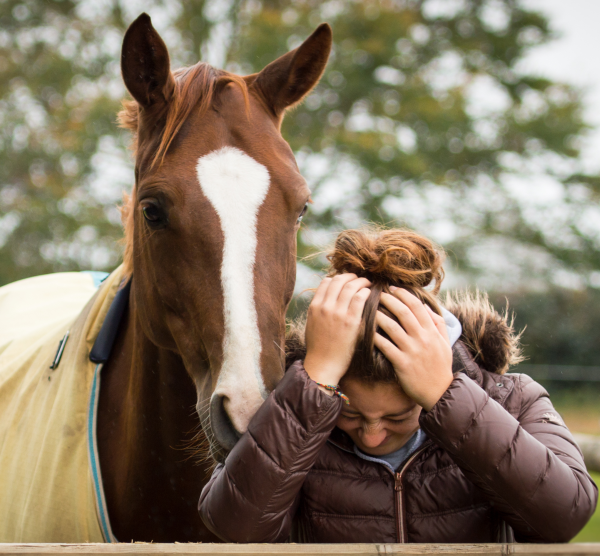 Your Mental health
Your Mental health
Your mental health matters and at a time when everything seems a little uncertain it is important to stay in communication with those around you.
If you are feeling worried or out of sorts then have a look at Grooms Minds, our online support to help you. As a BGA member you also have access to our Groom’s Minds Support Line – supported by Racing Welfare, is a free telephone helpline, open 24 hours a day.
Remember at this time your friends and colleagues may also be struggling so reach out and stay in contact. Here at the BGA we are open as normal and here to chat and help where we can.
Useful advice
As the coronavirus continues to spread keep up to date with advice from the NHS who has detailed information on staying safe, and symptoms.
The BEF will issue regular statements from Member Bodies regarding their standing on the situation and events.
If you have a question that is not answered please get in touch - we are here to help you.
What the personal accident policy covers you for:
- Whilst at work
- All stable duties – mucking out, grooming, washing off, turning out
- Clipping
- Riding – including hacking and jumping
- Hunting
- Lunging
- Breaking in
- Holding horse for a vet and other procedures
- Travelling horses both in the UK and abroad
- Competing in line with your job including: jumping, dressage, eventing
- Injuries that may happen to you whilst you are teaching - but you must also be grooming as part of your duties and not be a sole instructor
What the personal accident policy doesn’t cover you for:
- Riding in a race, point to point or team chase
- Stunt Riding
- Accidents occurring whilst travelling to and from work
- Riding and competing your own horse (but you can upgrade when applying for membership to include this)
- Public Liability – this is a separate insurance policy - the Freelance Groom Liability Insurance
- Care Custody and Control – this is a separate policy - the Freelance Groom Liability Insurance
If you require additional cover then please contact KBIS directly.
| GROOM | RIDER | EMPLOYER | |
|
When you are working for other people you do most of the following; muck out, turn out/catch in, tack up, groom horses, exercise Horses (including hacking, jumping and schooling), in the care of your employer/client. |
|
|
|
| Predominantly ride horses for other people including schooling, exercising and competing. | NO |
YES |
YES |
| Provide grooming services for someone else either full time or on a freelance basis i.e. an employer or a client. | YES |
NO |
NO |
| Employ staff – have an employers liability policy in your name | NO | NO | YES |
| Buy and sell horses | NO | YES | YES |


